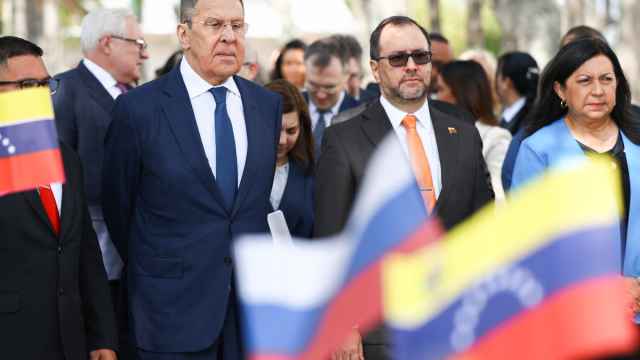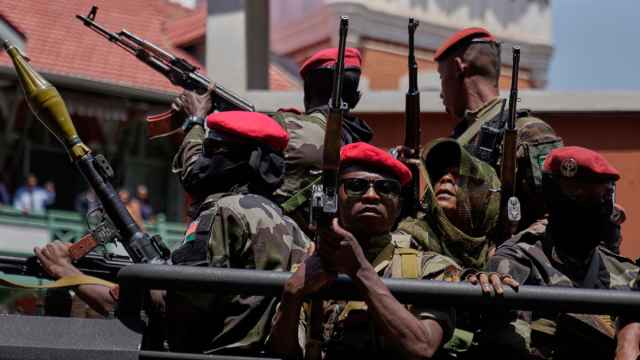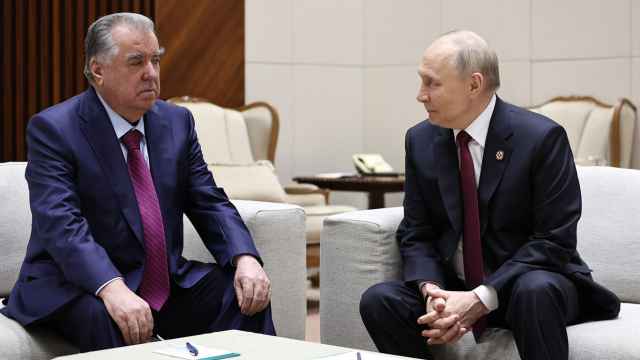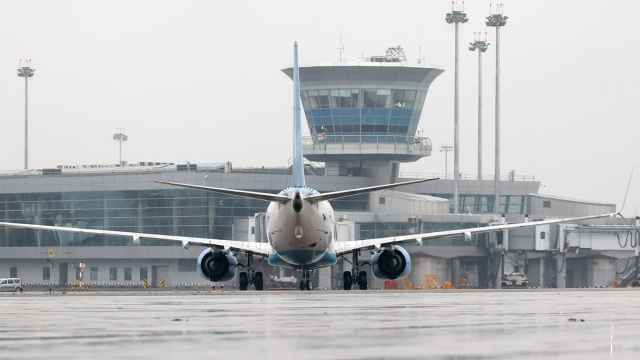MINSK — Shortly after emerging from a crisis that wiped out its foreign currency reserves and forced a 65 percent ruble devaluation, Belarus appears to be sticking with some of the policies that caused it — but with more caution.
President Alexander Lukashenko's government is again doling out subsidized loans, raising wages and drafting ambitious economic development plans while shunning International Monetary Fund calls for deep market reforms.
However, analysts say the authorities are acting more carefully this time, and the economy will most likely muddle through this year thanks to continued support from Russia and possible asset sales or Eurobond issuance.
"Growth will not be stimulated carelessly, the way it was in 2010," said Dmitry Kruk, a Minsk-based analyst at the Belarussian Economic Research and Outreach Center, or BEROC.
The former Soviet republic's government and central bank are planning to reduce inflation to 12 percent this year from 21.7 percent in 2012 while pushing economic growth to 8.5 percent from 1.5 percent.
Some economists say the growth target is unrealistic and will not be met.
"Officials are already preparing excuses for failing to meet this target," said Yaroslav Romanchuk of the Minsk-based think tank Mises Center.
Belarussian exports — dominated by oil products, chemicals such as fertilizers, and heavy machinery such as dump trucks and tractors — actually fell 13 percent year-on-year in January, leading to a 71 percent drop in the trade surplus.
The decline was largely a result of Minsk ending the practice of reselling Russian gasoline and other oil products as solvents and thinners under pressure from Moscow, which says it has been cheated out of up to $2 billion.
But the IMF believes Belarus has also lost much of the competitiveness gains from the 2011 devaluation after the nominal average monthly wage in the state-dominated economy rose by 65 percent during 2012.
This year, the government came up with the idea of boosting productivity through buying new equipment to upgrade existing industrial facilities. Lukashenko has asked Russia for a $2 billion loan to finance the plan.
But, even with new equipment, managers of state-run companies will have few incentives to become more efficient, says BEROC's Kruk, as long as they have guaranteed sales, access to subsidized loans and no competitors.
"The key to boosting growth rates is creating a competitive environment," Kruk said.
But such reforms, which could also pave the way for a deal with the IMF, are certain to upset the blue-collar work force in factories and industry that forms the core of Lukashenko's support base. They will also face resistance from hardliners in Lukashenko's entourage.
A fresh Russian loan coming on top of $900 million in scheduled tranches from a Moscow-led bailout fund would, however, help Belarus bridge the external financing gap which is set to widen due to weak exports and foreign debt repayments.
The government is also still discussing a new Eurobond issue of at least $500 million. Finally, it can raise some cash by selling assets such as oil refineries, most likely to Russian companies.
Still, according to Russian brokerage VTB Capital, Belarus' current account deficit is set to more than double this year to $5 billion to $6 billion, which will put some pressure on central bank reserves and the exchange rate.
"We ... expect the ruble to weaken against the dollar this year, easing to as low as 9,600 by the year-end (averaging 8,850)," it said in a note last week
The chances of Minsk getting an IMF loan are slim as the fund, disappointed by Belarus' poor performance since the implementation of the previous program in 2009-2010, wants Lukashenko's government to commit to unpopular market reforms.
Lukashenko, in power since 1994 and dubbed "Europe's last dictator" by the former U.S. administration, is also at odds with the West over his treatment of political opposition.
The European Union last year introduced travel bans and asset freezes against him and other local officials and businessmen in response to a crackdown in which several politicians who had run against Lukashenko in the 2010 election were jailed.
Related articles:
A Message from The Moscow Times:
Dear readers,
We are facing unprecedented challenges. Russia's Prosecutor General's Office has designated The Moscow Times as an "undesirable" organization, criminalizing our work and putting our staff at risk of prosecution. This follows our earlier unjust labeling as a "foreign agent."
These actions are direct attempts to silence independent journalism in Russia. The authorities claim our work "discredits the decisions of the Russian leadership." We see things differently: we strive to provide accurate, unbiased reporting on Russia.
We, the journalists of The Moscow Times, refuse to be silenced. But to continue our work, we need your help.
Your support, no matter how small, makes a world of difference. If you can, please support us monthly starting from just $2. It's quick to set up, and every contribution makes a significant impact.
By supporting The Moscow Times, you're defending open, independent journalism in the face of repression. Thank you for standing with us.
Remind me later.





